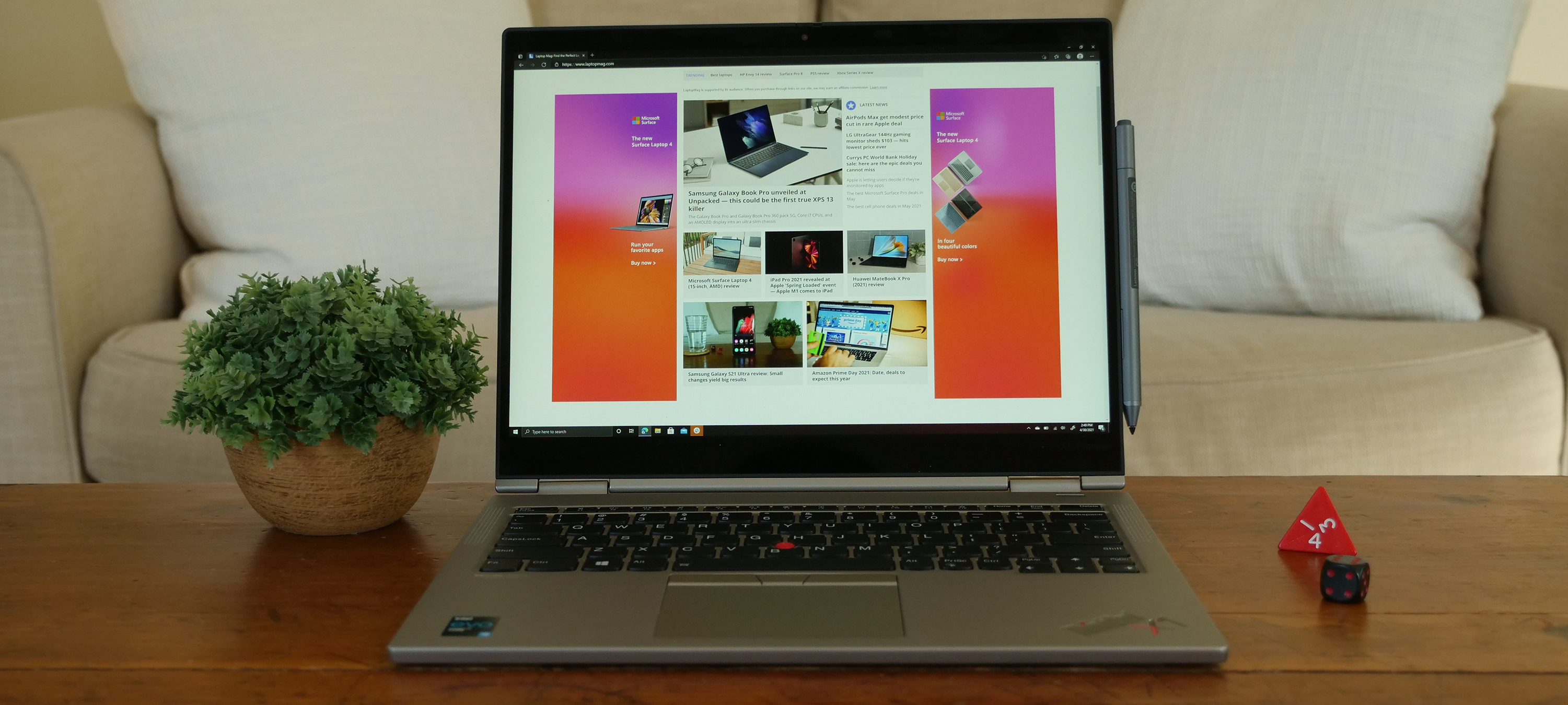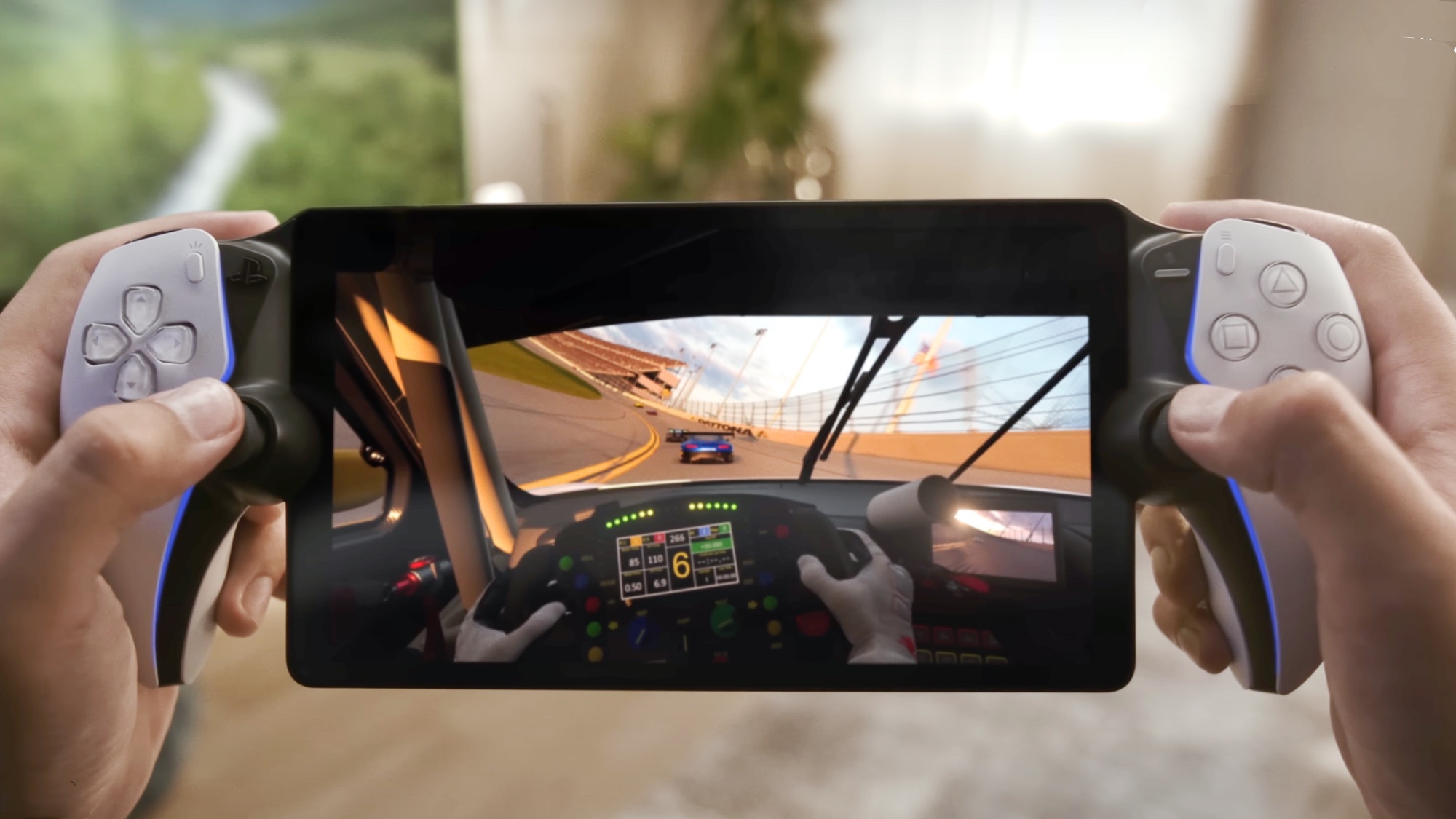Laptop Mag Verdict
The Lenovo ThinkPad X1 Titanium Yoga is the thinnest ThinkPad ever yet it delivers excellent battery life, solid performance and a useful 3:2 aspect ratio.
Pros
- +
Unbelievably thin
- +
Solid and durable chassis
- +
Decent webcam
- +
Bright and unique 3:2 display
- +
Versatile 2-in-1 design
Cons
- -
Haptic touchpad isn’t great
- -
Limited ports
- -
Somewhat expensive
Why you can trust Laptop Mag
Price: $1,689
CPU: Intel Core i5-1130G7
GPU: Intel Iris Xe
RAM: 16GB
Storage: 512GB SSD
Display: 13.5-inch, QHD
Battery: 9:54
Size: 11.7 x 9.2 x 0.45 inches
Weight: 2.5 pounds
The Lenovo ThinkPad X1 Titanium (Gen 1) sets itself apart in the often boring world of business laptops with a mind-bendingly thin sub-half-inch frame and titanium construction that we haven’t seen in years.
It doesn’t stop there either; the 3:2 aspect ratio has its ardent fans, but we haven’t seen it on too many laptops outside of the Surface Laptop 4. It’s brilliant for being productive, which is what the X1 Titanium is first and foremost crafted to do.
It’s not all perfect; the port selection is extremely limited, the haptic touchpad is on the small side and can be finicky and the keyboard had to cut down on the typically luxurious key travel found on ThinkPads. But if you can live with some of those small trade-offs, this is one of the best business laptops available and a brilliant 2-in-1 laptop for productivity.
Lenovo ThinkPad X1 Titanium Yoga Gen 1 price and configuration options
The base model is $1,685 and includes an Intel Core i5-1130G7 processor, integrated Iris Xe graphics, 16GB of LPDDR4X RAM, a 512GB SSD and a QHD (2256 x 1504) IPS Dolby Vision touchscreen.
Rare for Lenovo is how there aren't many configuration options available; you can spec yourself up to $2,429 at the top end and that swaps in an Intel Core i7-1180G7 CPU with vPro, a 1TB SSD and the vPro Wi-Fi and Bluetooth stack, but otherwise, the specs are identical.
I reviewed the base model, so you’ll get a clear picture of how the cheapest model performs for the X1 Titanium.
Lenovo ThinkPad X1 Titanium Yoga Gen 1 design
The highlight of the X1 Titanium's design is the improbably thin frame that, given to the titanium, carbon and magnesium alloy construction, feels like it could serviceably stand in as Captain America’s shield in a pinch. The display's 3:2 aspect ratio gives the laptop more squared-off dimensions at 11.7 x 9.2 x 0.45 inches. Those robust materials make it slightly heavier than some of its ultralight competitors, but at 2.5 pounds, it is hardly weighing you down.
Its nearest competitors by comparison are thicker and, in some cases, a bit heavier. This includes the ThinkPad X1 Carbon (8th Gen) (12.7 x 8.5 x 0.6 inches, 2.4 pounds), Dell XPS 13 (Model 9310, 4K) (11.6 x 7.8 x 0.6 inches, 2.8 pounds), and the HP EliteBook 830 G7 (12.1 x 8.1 x 0.7 inches, 2.8 pounds).
While it’s the tallest of these laptops due to that 3:2 display, it is smaller in every other dimension save for an extra 0.1-inch in width compared to the most recent Dell XPS 13. It does feel like Lenovo could have slimmed down the top and bottom bezels, but overall, it’s hard to complain about the size of the X1 Titanium.
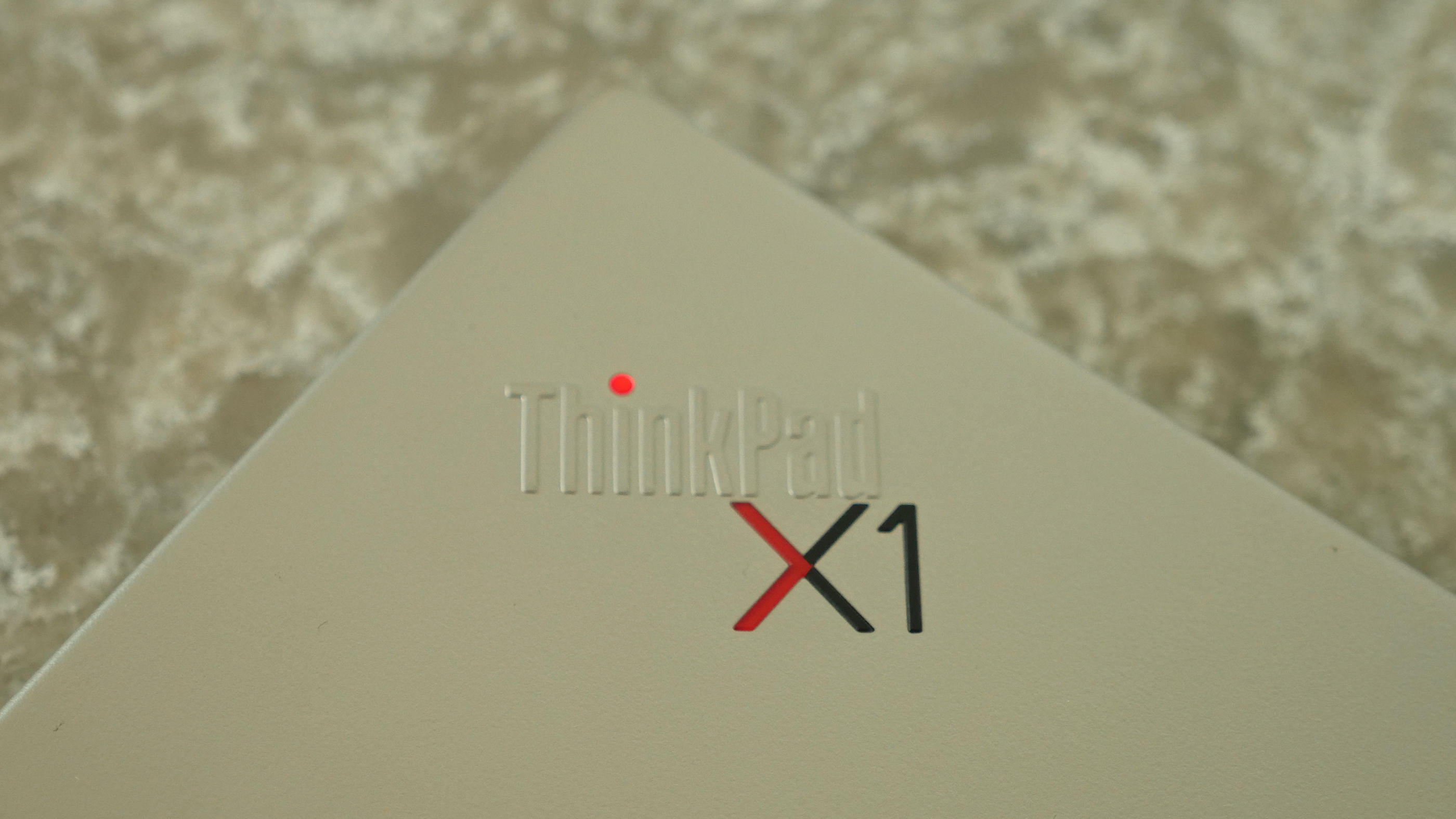
The overall look of the X1 Titanium falls in line with the rest of the ThinkPad lineup, but thanks to the titanium lid, it gets a slightly warmer yellow tinge than the typical grey or silver that you find in many business laptops. It’s also a black hole for fingerprints; you’ll never see a smudge on this laptop. The now-familiar ThinkPad logo with the flashing red dot over the “i” along with the black and red X1 logo gives a bit of personality to the otherwise reserved design.
Opening the lid, you will find a typical ThinkPad keyboard and touchpad layout with the TrackPoint safely nestled in the middle. While the hinge feels like it has a little play, I didn’t find it to be an issue when typing on my lap or desk. Writing with the included Precision Pen would be a different story, but that’s to be expected. The only placement I don’t love on the X1 Titanium is the fingerprint sensor located at the extreme top-right corner of the deck and so recessed that I find it awkward reaching for it.
Beyond the display itself, you also feel the 3:2 aspect ratio of the laptop when it is open as you get extra real estate above the keyboard that feels a bit wasted, particularly with the relatively small size of the touchpad below ( I’ll get to that later).
The Thinkpad X1 Titanium isn’t going to wow you with its aesthetics. However, with its titanium finish, thin profile and rugged feel, it has enough of a unique look to turn heads.
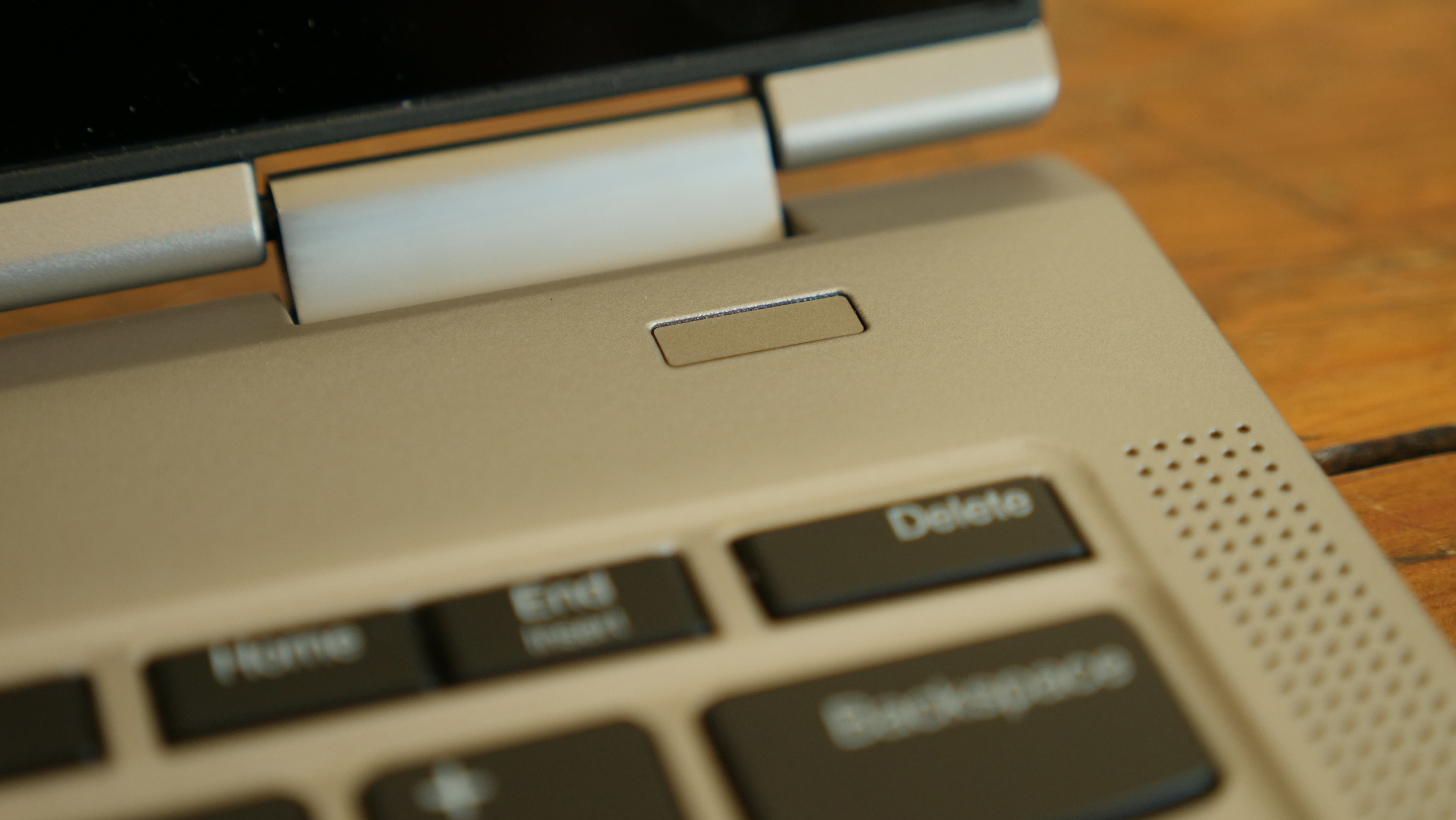
Lenovo ThinkPad X1 Titanium Yoga Gen 1 security and durability
As is always the case with ThinkPads, security and durability are on point.
Secure login can be handled via the IR camera with Windows Hello facial recognition, which also has human-presence detection, and poorly placed fingerprint scanner that I mentioned. If you want to ensure no one is watching you, the camera has an integrated privacy shutter. A Kensington lock is found on the right side of the laptop to keep it secured when necessary.
Internal security is ensured via a dTPM 2.0 chip that will keep your files encrypted.
Despite its improbably thin frame, the X1 Titanium still gets the full MIL-STD 810G certification, meaning it can operate in tough environments and handle drops, shocks and extreme temperatures. The keyboard is also spill-resistant, so while you can’t take it diving, an errant water spill won’t be a problem.
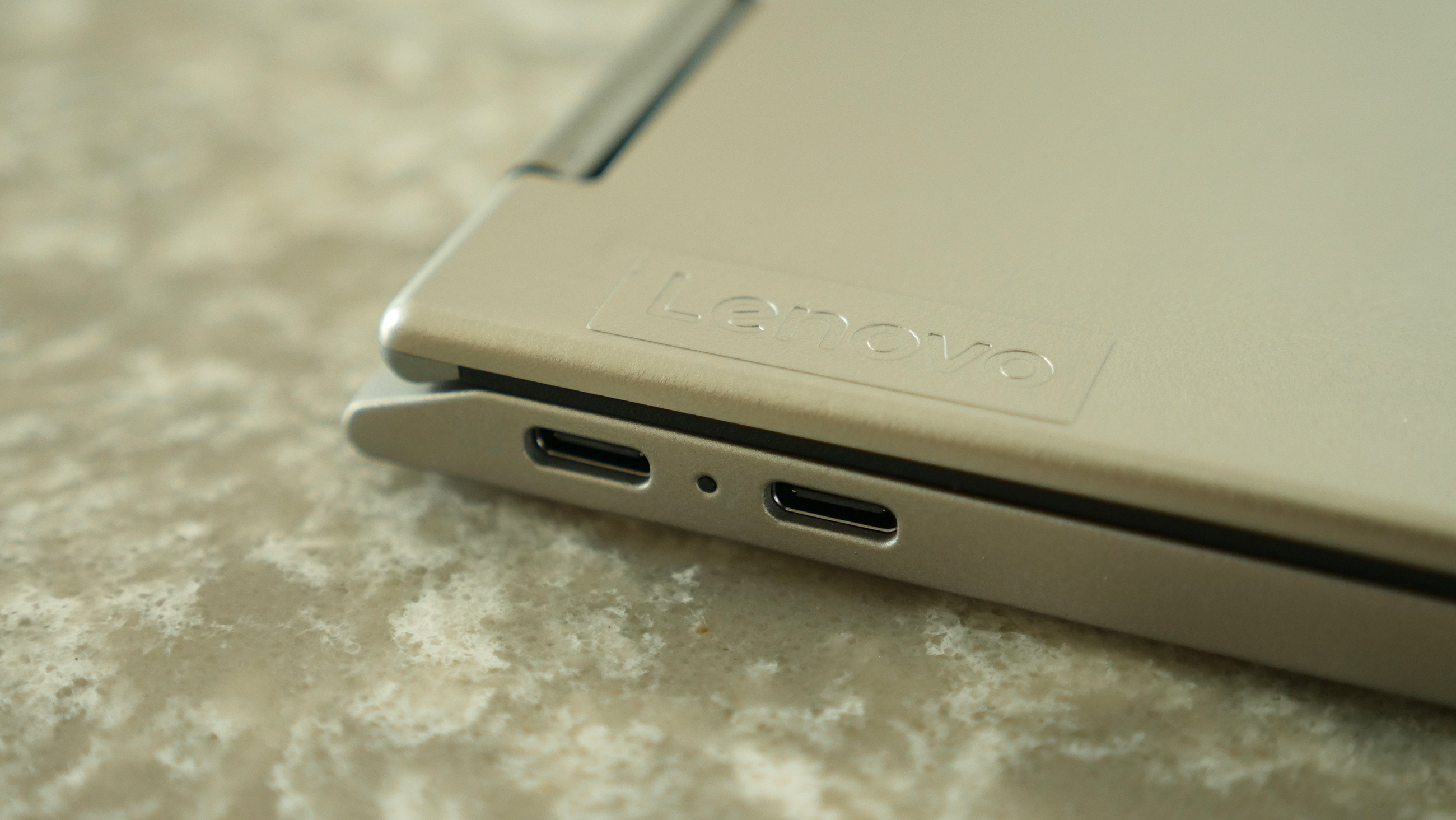
Lenovo ThinkPad X1 Titanium Yoga Gen 1 ports
The ports are where you'll feel some pain when it comes to the thin X1 Titanium. I’ll lead with the good news: you have two Thunderbolt 4 ports, but that’s it save for the combo headphone/mic jack and Kensington lock.
Both of the Thunderbolt 4 ports are located on the left side of the laptop. I understand from a design standpoint why that is necessary, but it’s always disappointing to not have the option to charge from either side of the laptop.
In short, if you don’t already own a good USB Type-C hub, add that to the budget when you are ordering your X1 Titanium.
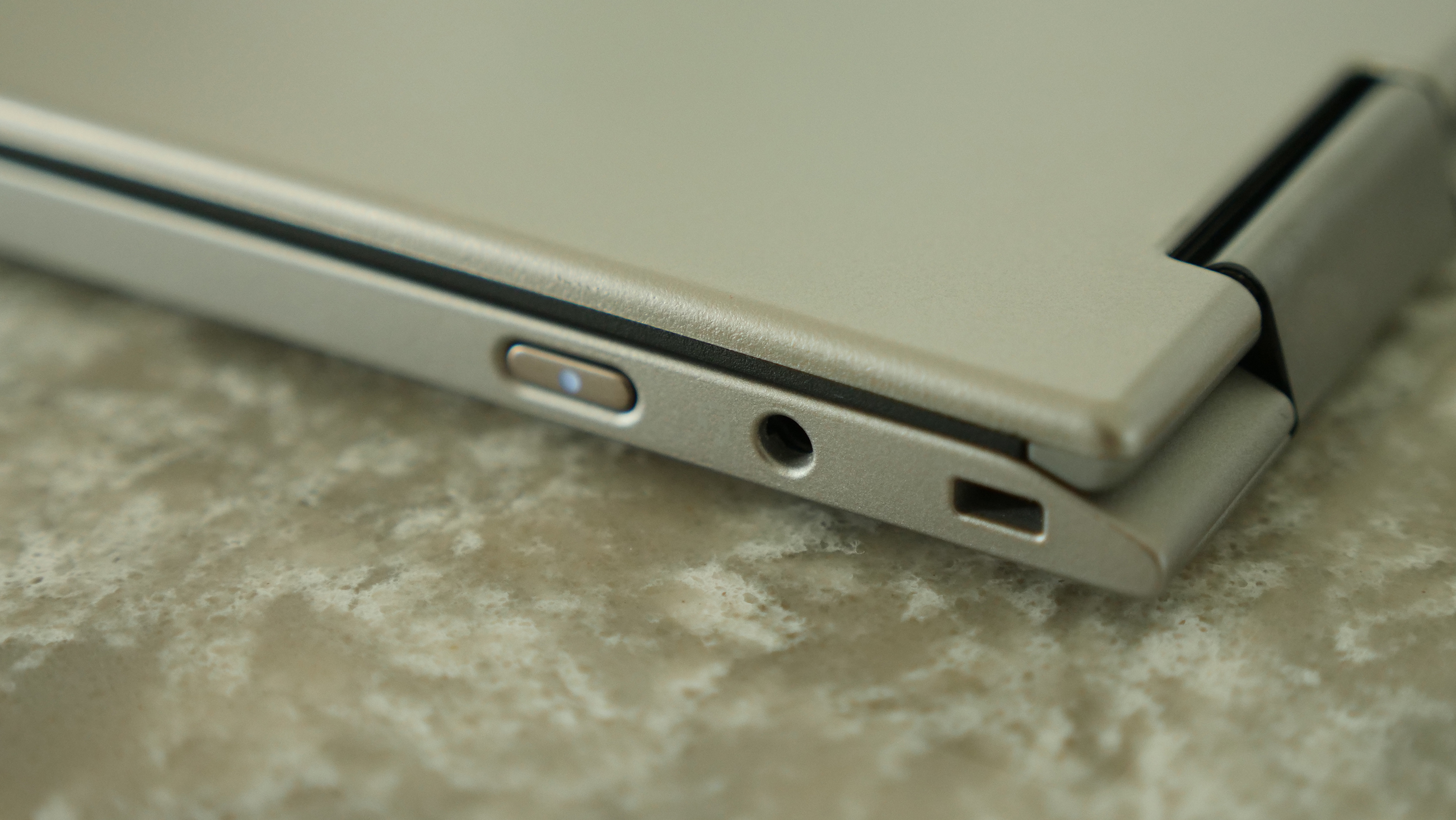
Lenovo ThinkPad X1 Titanium Yoga Gen 1 display
The ThinkPad X1 Titanium's 13.5-inch, QHD/2K (2256 x 1504-pixel) touchscreen display with its tall 3:2 aspect ratio gives you a crisp and bright image as well as a luxurious amount of vertical space when doing general productivity tasks.
These types of 2-in-1s can feel clunky but the X1 Titanium makes for a compelling tablet experience. When folded flat, the thin build allows you to easily work with the notebook in your hands without feeling like you are wielding a full laptop as is often the case with 2-in-1 laptops. The included Lenovo Precision Pen rounds out that experience with 4,096 degrees of pressure sensitivity; it’s not going to be an artist tablet like the Wacom One S, but it's great for taking notes and simple sketching. I do miss having the pen slot on the edge of the laptop (see Yoga 9i), however, the full-size pen is much nicer to hold and there’s a magnetized spot on the right side of the display so you can keep it in reach while you work.
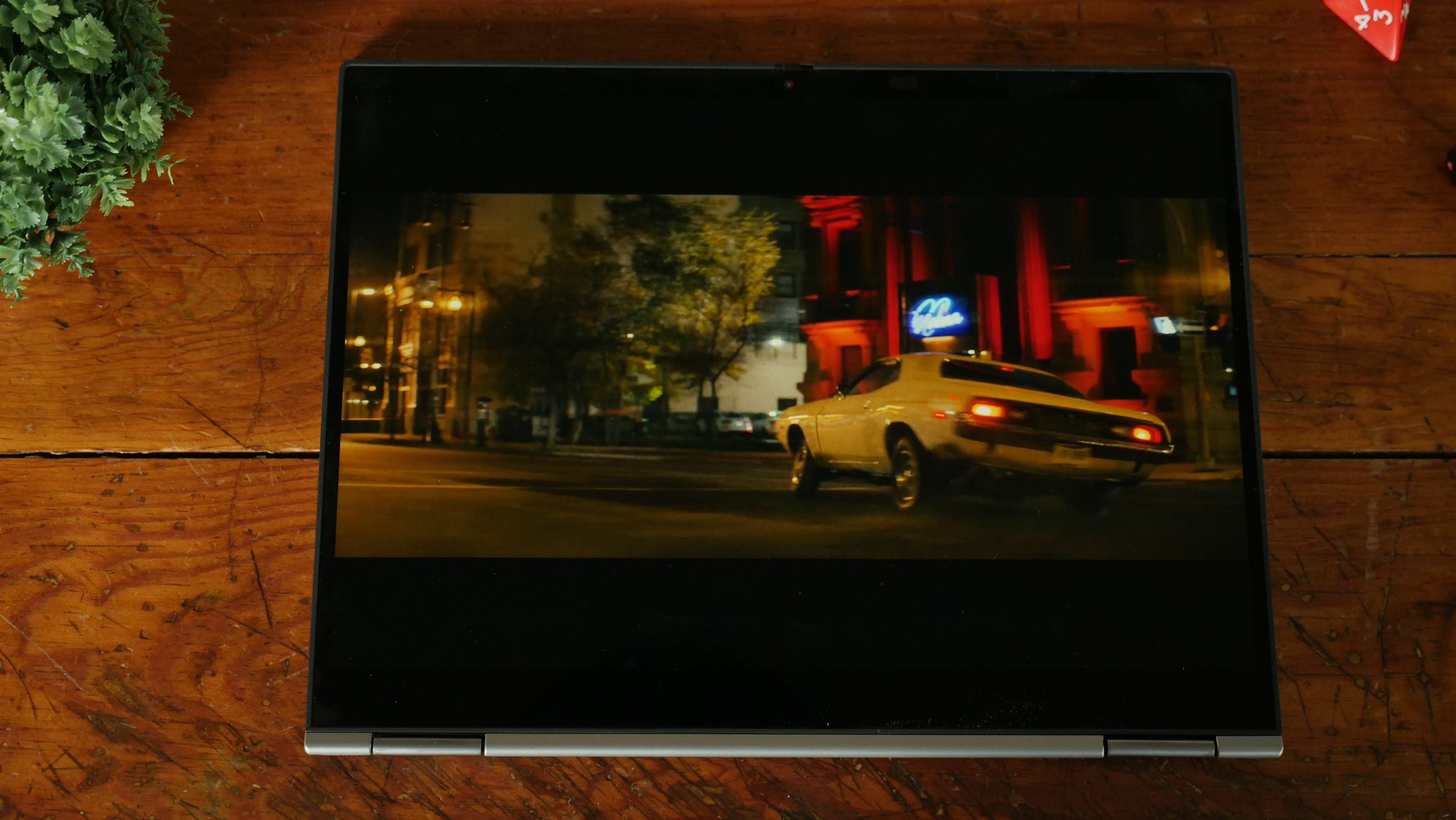
The aspect ratio makes it less than ideal for watching videos as you get sizable black bars at the top and bottom of the panel. But in terms of image quality, it’s not bad at all. Watching the trailer for Nobody, the X1 Titanium rendered the details beautifully, but the colors didn't pop as much as they would on multimedia-focused laptops, even with massive explosions happening on screen.
Turning to the colorimeter for support, The X1 Titanium covers 71% of the DCI-P3 color gamut. That’s about what you expect from a ThinkPad with the X1 Carbon (72%) giving a similar result, but the X1 was slightly edged out by both the Dell XPS 13 (Model 9310, 4K) (77%) and the HP EliteBook 830 G7 (79%).
It performed much better on our brightness test, the more relevant spec for the average user considering the X1 Titanium. At 425 nits in our testing, it is ahead of the 1080p X1 Carbon (364 nits) and the HP EliteBook 830 G7 (374 nits), and was just slightly bettered by the Dell XPS 13 (442 nits).
Lenovo ThinkPad X1 Titanium Yoga Gen 1 keyboard and touchpad
The X1 Titanium delivers most of what you have come to expect from a ThinkPad keyboard, but it comes up just a little short. This is almost certainly attributable to the 1.3mm key travel compared to 1.5mm you would find on the X1 Carbon or X1 Yoga.
I don’t want to oversell this; it’s still a much better typing experience than many of the laptops that come across my desk, but it just isn’t quite the full luxurious Thinkpad keyboard experience.
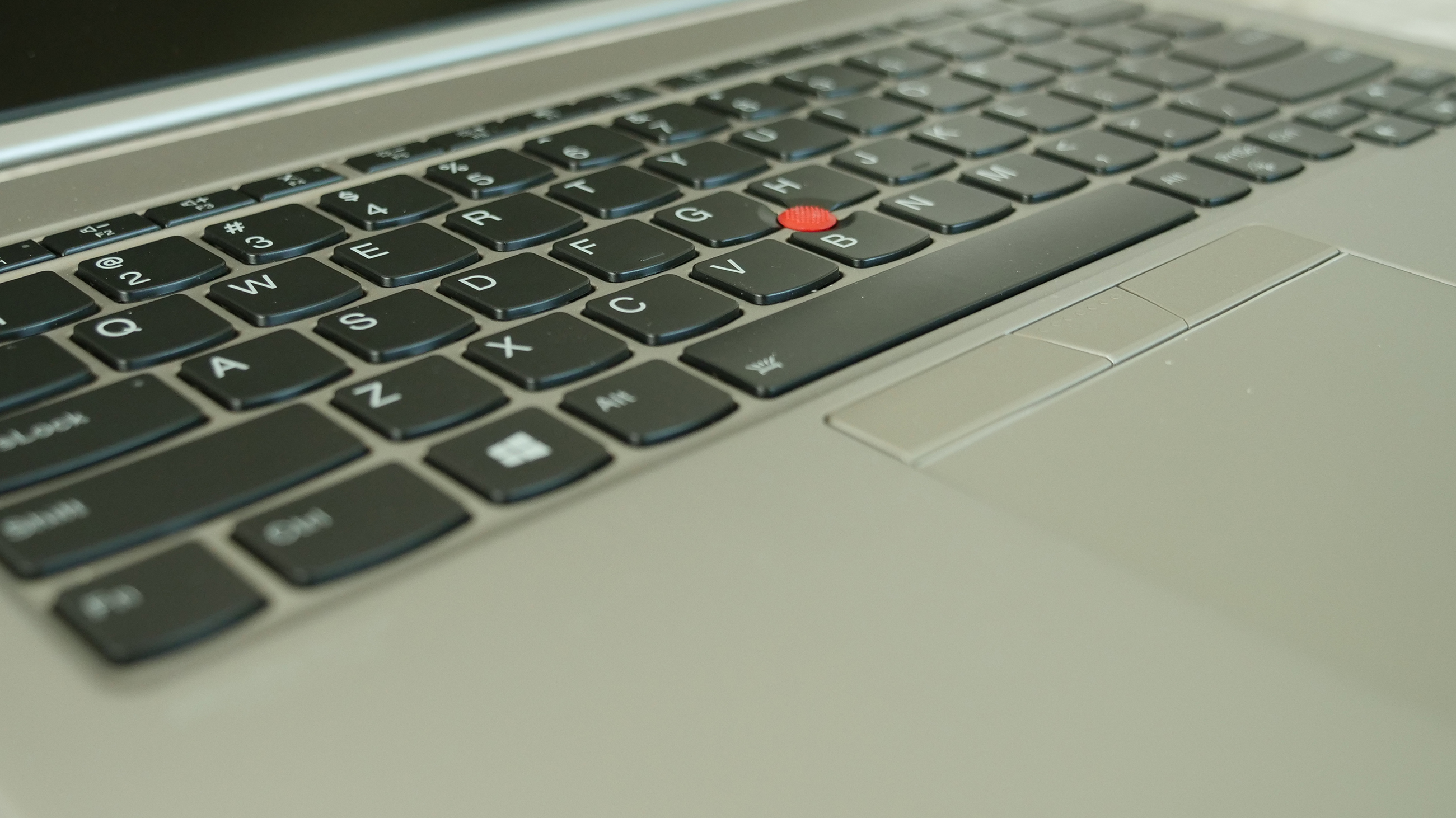
My typing speed test didn’t take a hit. I averaged 86 words per minute with 97% accuracy on the 10fastfingers.com typing test, which is dead on my current average. If you haven’t used a ThinkPad recently, it can take 15 to 20 minutes to adjust to the depression surrounding the red TrackPoint nub located at the intersection of the G, H and B keys, but after that, it's smooth sailing.
Turning to the touchpad, the 3.6 x 2.7-inch surface feels diminutive compared to those on many other modern laptops, but it is sufficient to carry out Windows 10 gestures. The haptic feedback versus actually depressing the touchpad was irritating. This is no doubt a necessary space-saving design choice, but I’m not a fan. Unless you are a TrackPoint user or prefer to rely on the touchscreen regularly, I would counsel picking up a mouse like the Logitech MX Anywhere 3 or MX Master 3.
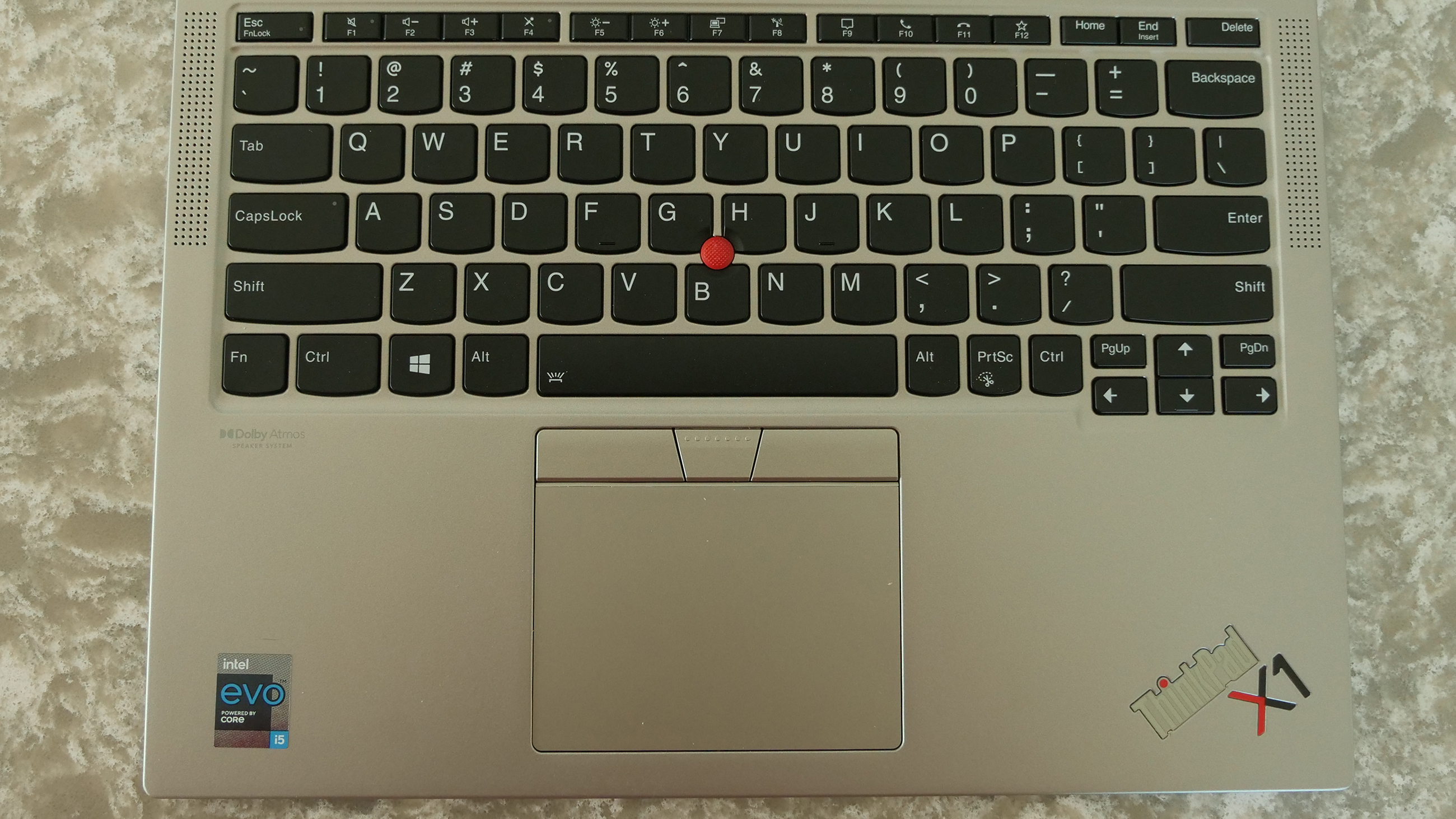
Lenovo ThinkPad X1 Titanium Yoga Gen 1 audio
The Lenovo ThinkPad X1 Titanium Yoga Gen 1 has top-firing speakers that get louder than you would imagine for its tiny frame. They had no problem filling my 18-by-12-foot listening space. With that said, they aren’t magical; there’s no bass to be found, so depending on your needs, a pair of wireless headphones or wired can are a good addition to your laptop bag.
I listened to “Your Power” by Billie Eilish, which was just about a dream matchup for the Lenovo ThinkPad X1 Titanium Yoga’s speakers. The wispy high vocals and gentle guitar riffs underlying them managed to stay clear and crisp even with the volume turned all the way up. However, as the movie trailer and anything with even a modicum of bass proved, the X1 Titanium speakers struggle with low tones.
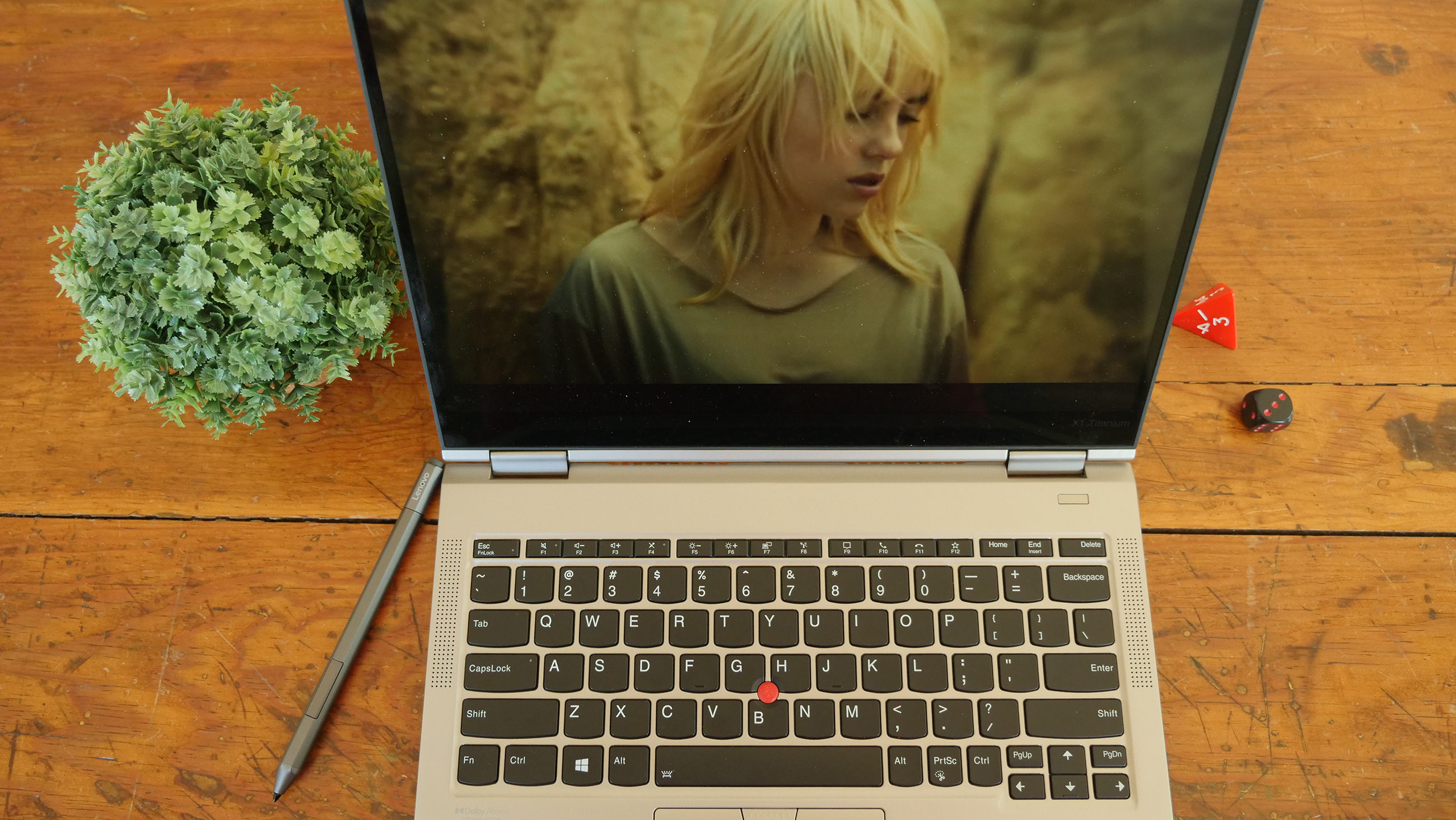
Lenovo ThinkPad X1 Titanium Yoga Gen 1 performance
The Intel Core i5-1130G7 processor found in the X1 Titanium is the same one Lenovo used in the ThinkPad X12 Detachable, which means it isn’t a performance powerhouse. That said, for the kind of productivity work the laptop is geared toward, it is more than equal to the task. Paired with 16GB of RAM and the integrated Iris Xe graphics, this isn’t the ultra-low-power performance of old.
I subjected it to my normal collection of 30 to 40 Google Chrome tabs, including a couple of YouTube videos running at 1080p with Slack and an image editor running as well, and the laptop handled it without a problem.
The X1 Titanium held up admirably in the Geekbench 5.4 overall performance test, with a multi-core score of 4,747. That was well ahead of the X1 Carbon (3,597), and the HP EliteBook 830 G7 (4,262), but not enough to take on the more mainstream premium Dell XPS 13 (5,365).
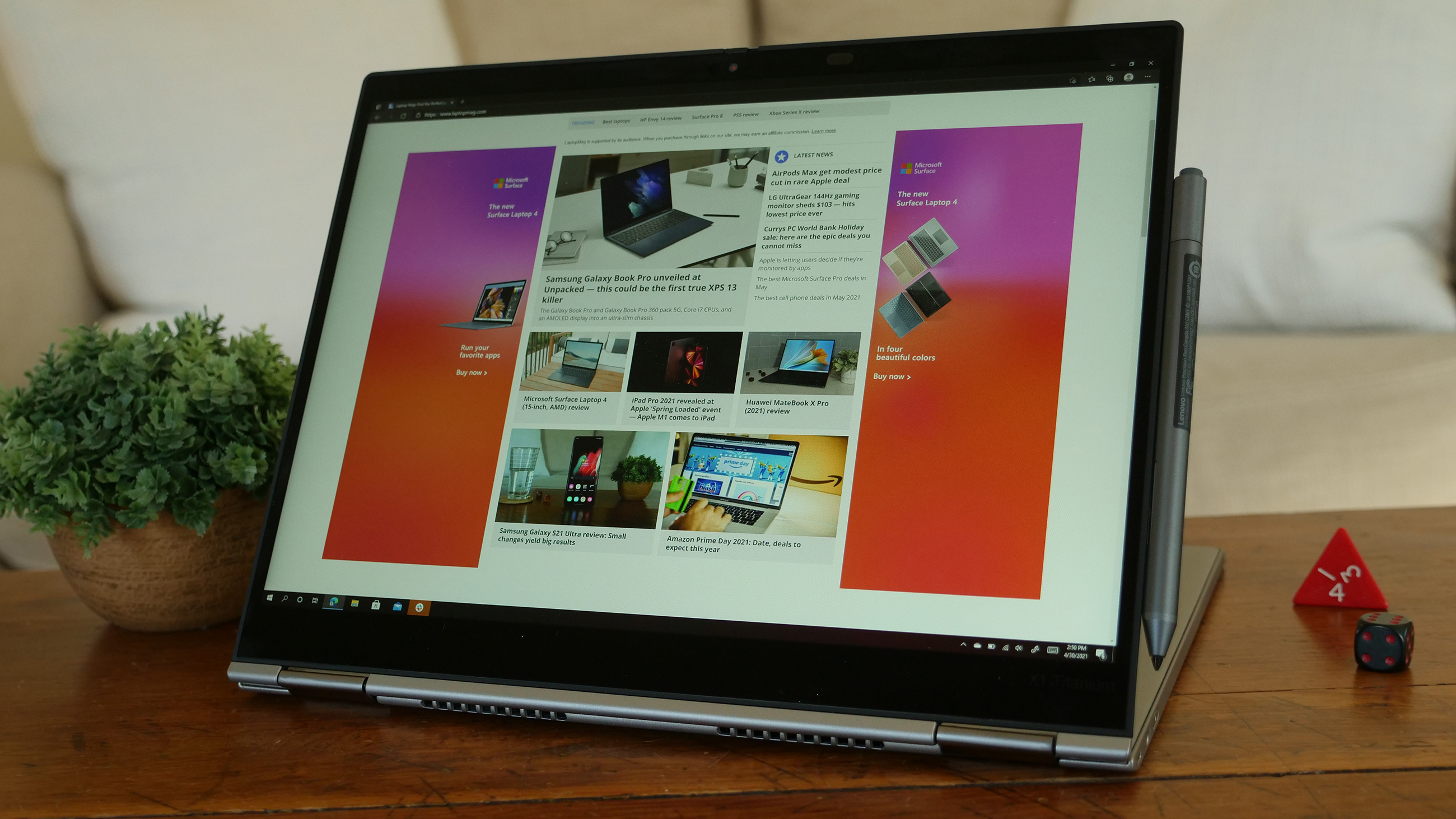
On our Handbrake video transcoding test, which requires the laptop to convert a 4K video to 1080p resolution, the ThinkPad X1 Titanium performed reasonably well. The X1 Titanium completed the task in 20 minutes and 43 seconds. That was the slowest result among its competitors with the X1 Carbon (19:51) a little less than a minute ahead and the HP EliteBook 830 G7 (17:12) and Dell XPS 13 (18:33) further ahead.
The Lenovo ThinkPad X1 Titanium Yoga Gen 1’s 512GB SSD is its performance weak spot, only managing a 409 MBps transfer rate in our 25GB file transfer test. That’s quite a bit slower than the X1 Carbon (783 MBps) and Dell XPS 13 (814 MBps) with only the HP EliteBook 830 G7 (575MBps) failing to nearly double its pace.
Lenovo ThinkPad X1 Titanium Yoga Gen 1 graphics
The Lenovo ThinkPad P15 features the top-of-the-line Nvidia Quadro RTX 5000 Max-Q GPU with 16GB of VRAM, which absolutely crushed the 3DMark Fire Strike synthetic graphics benchmark with a score of 17,296. That was enough to top the charts against its opponents, the MSI WS66 10TMT (16,788, Quadro RTX 5000), the WS65 9TM (15,364, Quadro RTX 5000) and the Asus ProArt StudioBook 15 (13,767, GeForce RTX 2060).
Obviously, if gaming is your primary goal, one of the best gaming laptops is going to deliver a better price-to-performance ratio, but if you just want to do some gaming in your downtime with the Lenovo ThinkPad P15, it is more than up to the task. The Lenovo ThinkPad P15 churned out 93 frames per second on Sid Meier’s Civilization VI: Gathering Storm in 4K, tripling our 30-fps playability threshold.
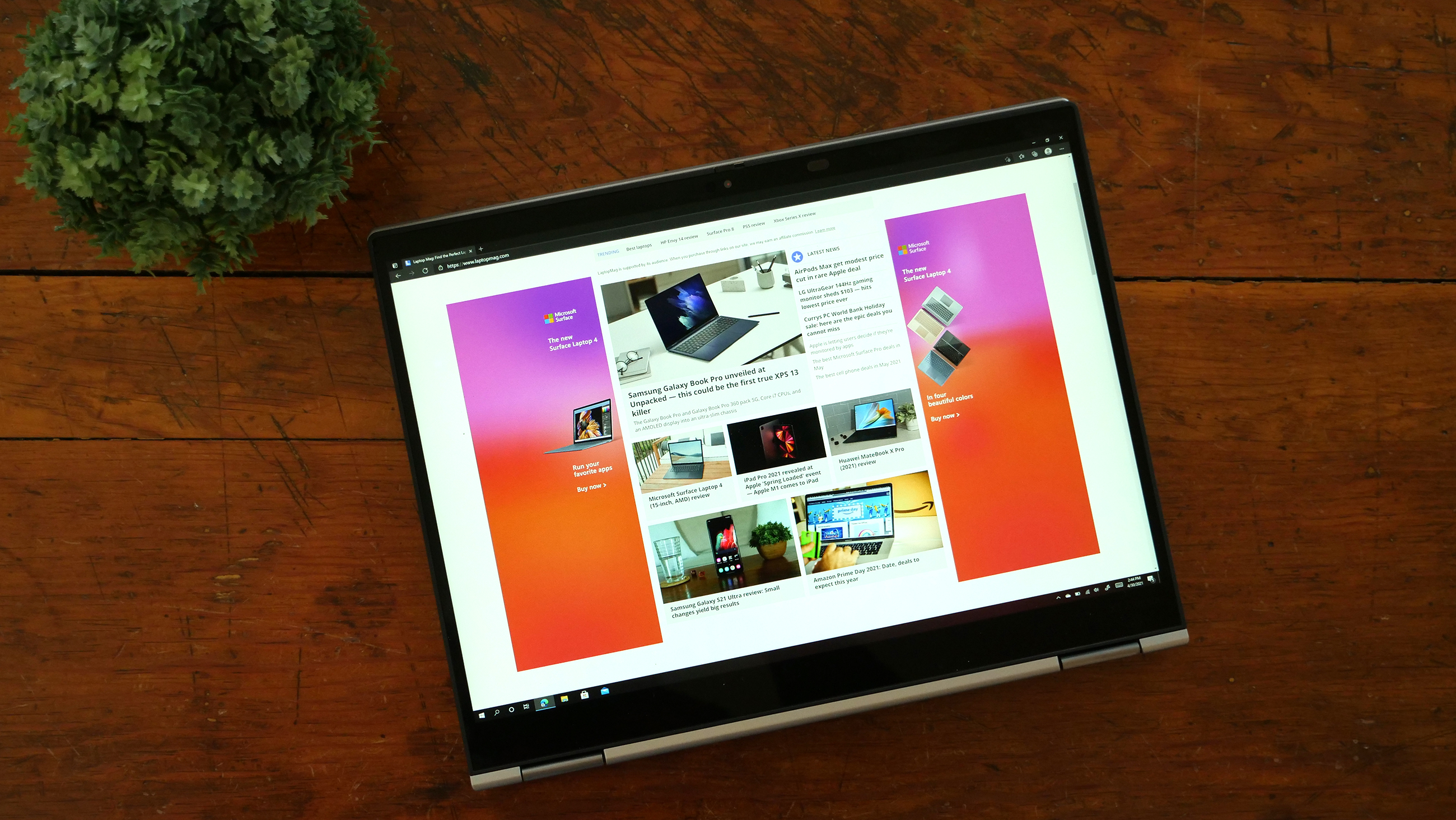
Lenovo ThinkPad X1 Titanium Yoga Gen 1 battery life
As thin as it is, you would really expect the battery life on the X1 Titanium to take a hit. While it isn’t breaking any records, the 9 hours and 54 minutes it managed in our Laptop Mag battery test (web-browsing at 150 nits) is remarkable for its size.
As you’ll see, its thicker counterparts couldn’t always keep up. The 1080p Thinkpad X1 Carbon (10:45) came out ahead but the 4K model (7:23) was well behind. The Dell XPS 13 (7:32) also couldn’t overcome the hurdle of its 4K display and the HP EliteBook 830 G7 (9:45) was just slightly behind as well.
The X1 Titanium should have no issues getting you through a day which is a pretty impressive achievement when you consider the 2K display.
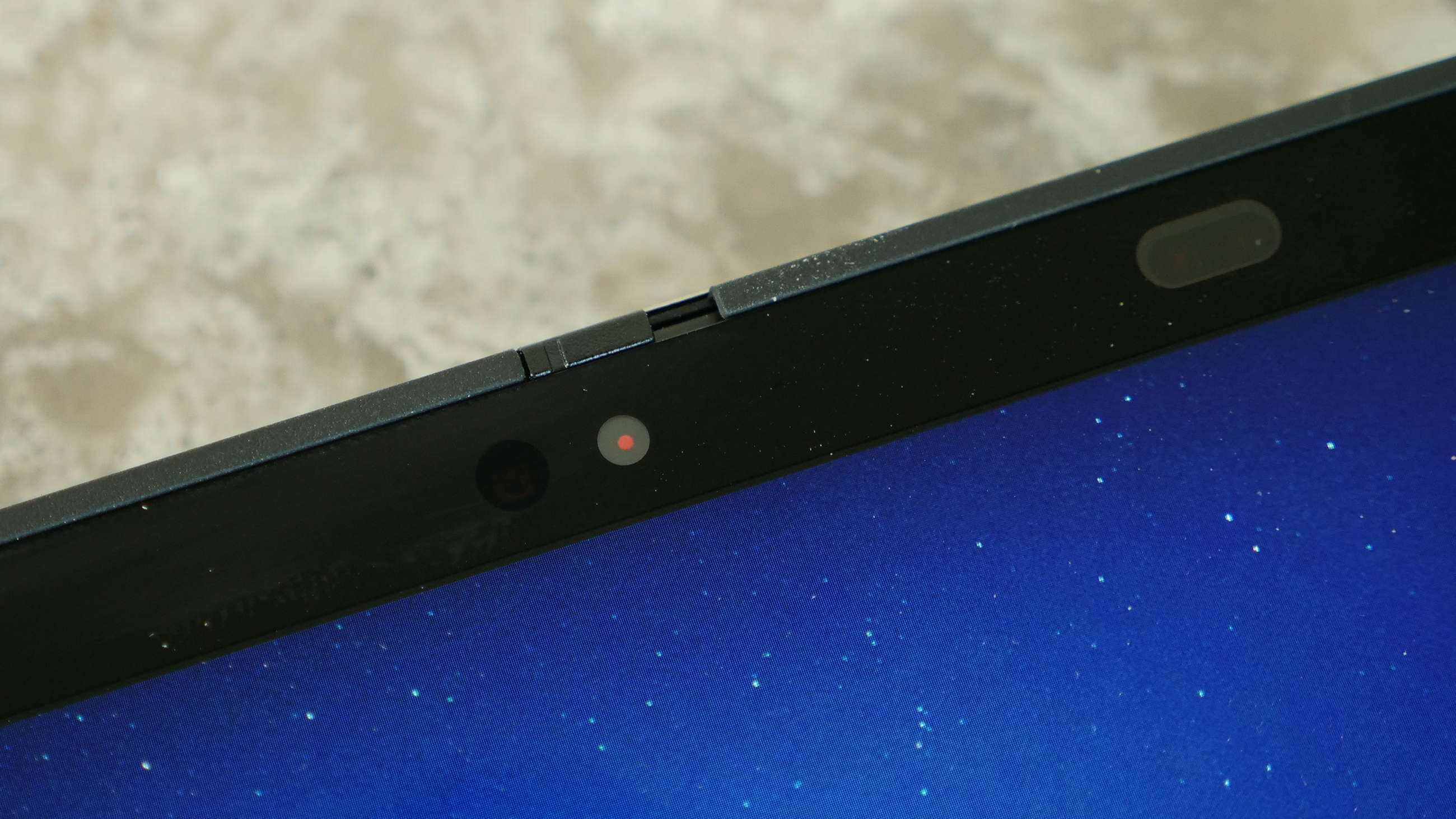
Lenovo ThinkPad X1 Titanium Yoga Gen 1 webcam
It’s not going to challenge the new reigning laptop webcam champ in the Dell Latitude 7320, but the 720p camera in the X1 Titanium held up better than I thought it would under good lighting.
I have solid lighting controls in my office, but even with that, I find a lot of laptop webcams perform terribly, so I was happy to see I could get a good enough result out of the X1 Titanium. If you do a lot of video conferencing or video chat and want to make the best impression possible then pick up an external webcam, but for impromptu video meetings or if you are traveling and don’t want to take your external webcam along, the X1 Titanium is up for the task.
I mentioned it in the security section, but the IR camera and Windows Hello support are always appreciated as well.
Lenovo ThinkPad X1 Titanium Yoga Gen 1 heat
Just like the battery life, I expected the Lenovo ThinkPad X1 Titanium Yoga to have a hard time with our heat test which involves playing a 15-minute, 1080p video and then taking a number of temperature readings. It proved me wrong again.
No part of the laptop spiked above our 95-degree temperature threshold, with only a spot on the keyboard deck above the f5 key going to 94 degrees. The touchpad stayed a cool 74 degrees, while the underside of the laptop was at 85 degrees and the keyboard itself was a pleasant 82 degrees.
I didn’t encounter significant fan noise when using it; I’m thoroughly impressed with Lenovo’s thermal work on this one.
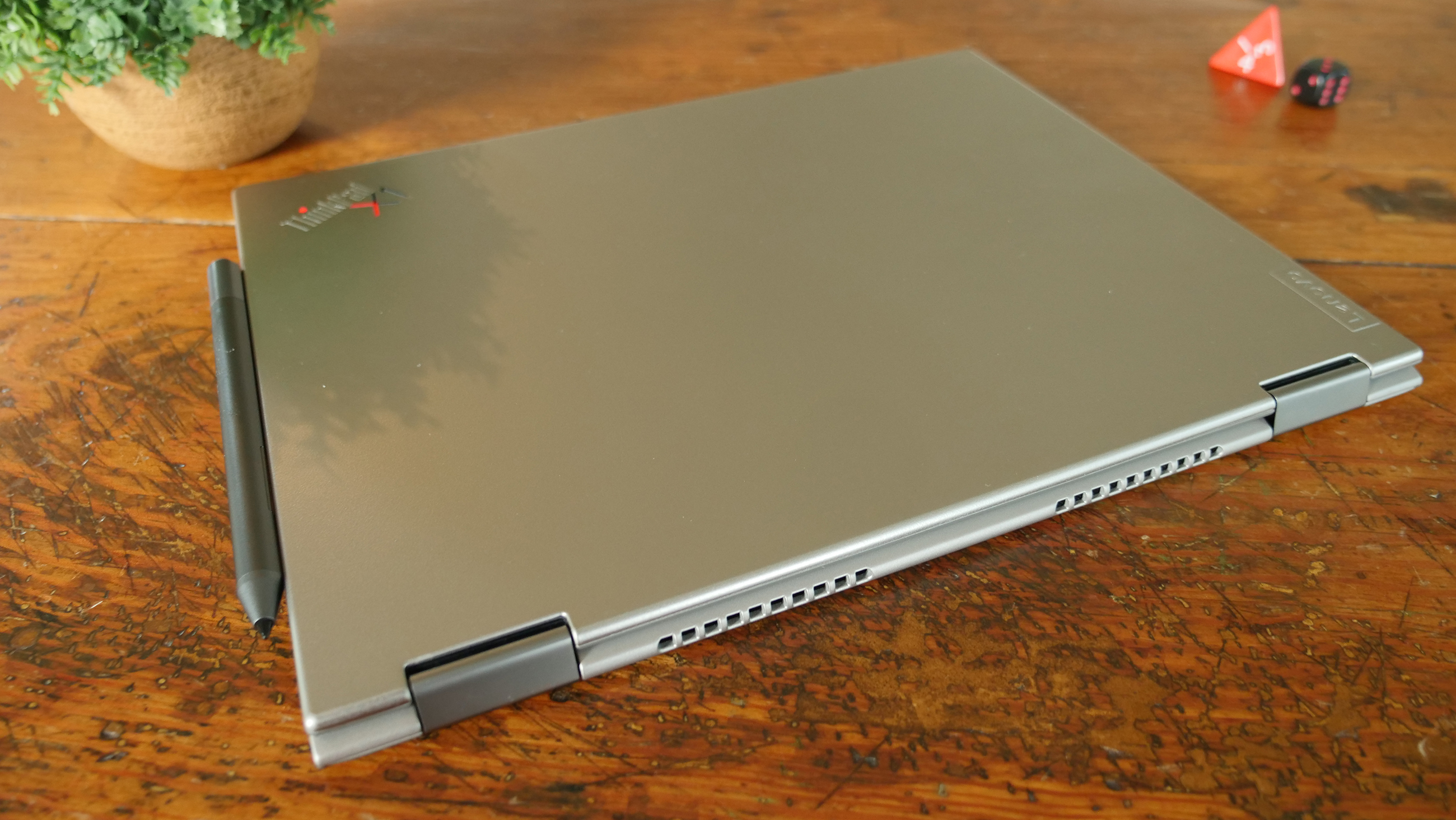
Lenovo ThinkPad X1 Titanium Yoga Gen 1 software and warranty
The Lenovo ThinkPad X1 Titanium Yoga Gen 1 ships with Windows 10 Pro and is completely free of bloatware. That may be what you would expect for a business laptop, but I’m still always thrilled to scroll through the apps and not see any random games, apps or utilities.
Lenovo Commercial Vantage is the system management tool that comes pre-installed on the X1 Titanium. It gives you a glanceable system health dashboard and monitors for any necessary updates to your system. This includes BIOS and Lenovo-specific updates as well as general Windows 10 updates. You can also enable Lenovo Wi-Fi Security from Commercial Vantage which will analyze your network for any security threats in real-time.
Lenovo also includes its Quick Clean utility, this is predominantly for medical applications as it allows you to disable everything on the laptop in order to physically clean it.
Commercial Vantage also displays your current warranty status with links to help you take advantage of or upgrade your warranty and contact the premium support line.
Lenovo ThinkPad X1 Titanium Yoga Gen 1 comes with a one-year limited warranty. You can see how Lenovo fares on this front in our Tech Support Showdown and Best and Worst Brands special reports.
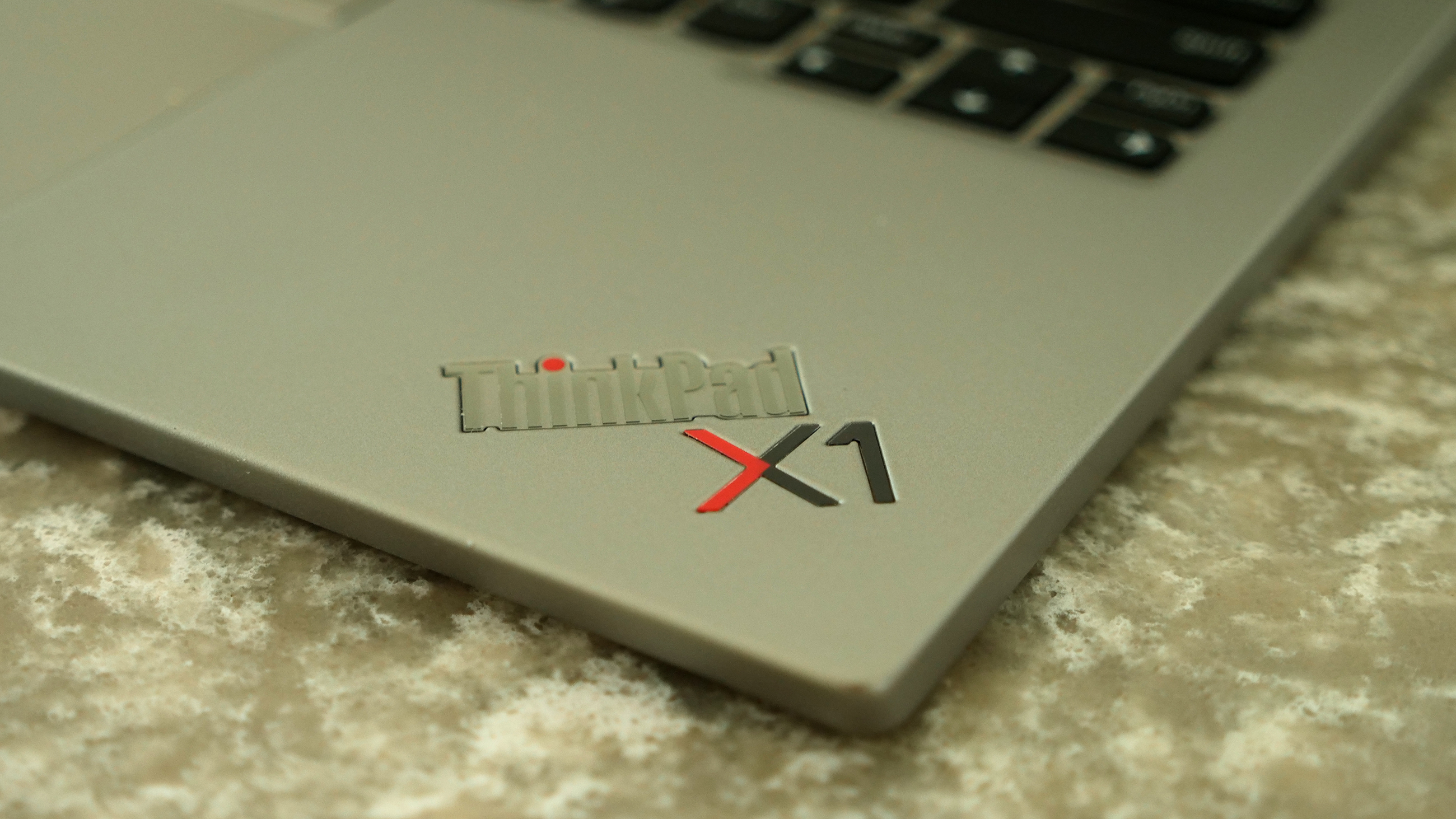
Bottom line
The ThinkPad X1 Titanium is another excellent addition to Lenovo’s X1 lineup, joining its sibling the ThinkPad X1 Nano and ThinkPad X1 Carbon, but bringing some unique qualities to the table with its 3:2 aspect ratio and rugged yet thin titanium build.
That chassis makes it a standout as a 2-in-1 business laptop; it is easy to handle in tablet mode and while I miss having a silo for the pen from a convenience standpoint, a full-sized pen feels a lot better in your hand.
The lack of ports will be a frustration for some; Thunderbolt 4 gives you lots of flexibility at least, but it means carrying around dongles for HDMI out or USB Type-A. If you want to avoid the dongle life the X1 Carbon remains the choice for you. While you're shopping for dongles, make room in your bag for a mouse or become a TrackPoint master because the touchpad is another disappointment.
I otherwise struggle to find faults with the X1 Titanium. Those few drawbacks aside, this is an excellent and versatile laptop that should hold up well to years of use.
Sean Riley has been covering tech professionally for over a decade now. Most of that time was as a freelancer covering varied topics including phones, wearables, tablets, smart home devices, laptops, AR, VR, mobile payments, fintech, and more. Sean is the resident mobile expert at Laptop Mag, specializing in phones and wearables, you'll find plenty of news, reviews, how-to, and opinion pieces on these subjects from him here. But Laptop Mag has also proven a perfect fit for that broad range of interests with reviews and news on the latest laptops, VR games, and computer accessories along with coverage on everything from NFTs to cybersecurity and more.
